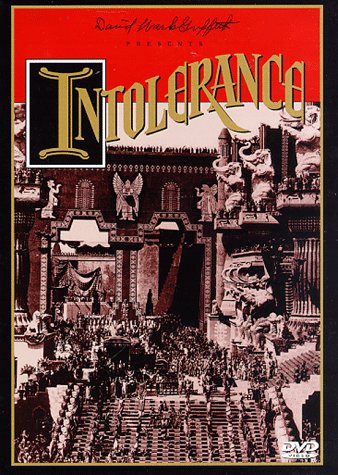 |
D.W. Griffith’s INTOLERANCE (1916)
A Colossal Saga of Hatred and Prejudice
Intolerance is a gigantic story about human hatred and prejudice. It spans over two and a half millennia of human civilisation and is 197 minutes long. The structure of this film is unusual and very modern. Intolerance is a composite of four distinct stories set in four distinct historical periods: the fall of Babylon, the Passion of Christ, the French Huguenot Massacre (the night of St. Bartholomew), and a ‘Modern’ (1916) drama. These four stories unfold simultaneously, being intercut at various moments with increased frequency as the movie approaches its climax. All transitions from one period to another are made through . . . |
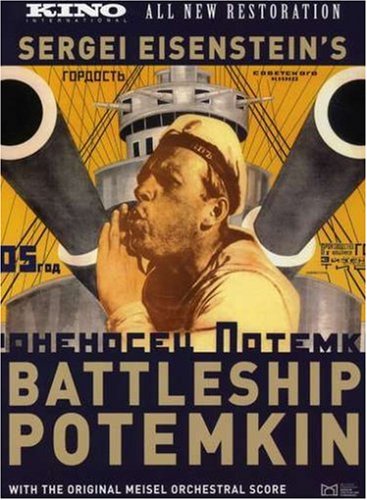 |
Sergei Eisenstein’s BATTLESHIP POTEMKIN (1925)
Propaganda as Art
Brussels, Belgium, 1958. The World’s Fair votes the Soviet film Battleship Potemkin as the greatest film of all time.
... Roger Ebert, the world-renown film critic, calls Battleship Potemkin “one of the fundamental landmarks of cinema”, “obligatory for anyone interested in film history”, and still containing “a buried power”.
The “buried power” of the movie was obvious to the governments of the time and, after being tremendously successful in Germany, France and the US, Eisenstein’s masterpiece was banned in all those countries. The UK, and even the Soviet Union - the initiator of the project - followed suit shortly. Potemkin was too successful with the masses. In the advent of the world’s Great Depression, as daily life became increasingly difficult for the many, governments were suddenly afraid of the outstanding power of this propaganda film. They felt the danger ...
|
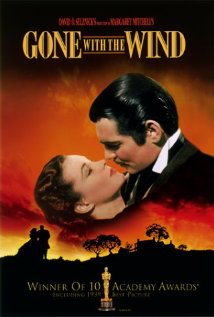 |
Victor Fleming’s GONE WITH THE WIND (1939)
73, and Still Incredibly Beautiful
When Scarlett O’Hara rises from the dirt and swears to God that she “will never be hungry again” the skies are covered by a velvety dark red shroud. Scarlett’s silhouette, projected on these bruised heavens, envelops the viewers and throws them into an emotional vortex animated by two contrary forces: an acute sense of loss and a senseless loss of despair.
Tragedy and hope are knitted together into Victor Fleming’s vast canvass of 1938. “Gone With the Wind” still stands today as a vibrant visual poem of war and peace, corruption, greed, passion, and bravery. Paraphrasing legendary director F. W. Murnau, this story of the ole South is a “Symphony of Hope” - despite the tragedy of war and in spite of some serious despicable characters. But “Gone with the Wind’ is also something else. It is a whirl of . . .
|
 |
Alfred Hitchcock’s VERTIGO (1958)
Obsession as Art
When I heard that Alfred Hitchcock’s Vertigo replaced Citizen Kane as the number one movie of all time after 50 years of Kane’s undisputed reign on the top of the list, I was both shocked and disappointed. Shocked because, even before I was born, Kane was The Movie. Basically, throughout my entire life, Orson Welles’ work of genius radiated its light from the Olympus of cinema. Disappointed, because – although I admired Hitchcock and regarded him as a very influential filmmaker - I never thought of him as being capable to generate masterpieces. Moreover, Vertigo surely wasn’t the first title popping up in my mind when I thought of the little funny guy who astutely amused himself by scaring people to death.
... I reminisced Vertigo as just another great thriller; no more than that. Then the news came up this year that Vertigo was crowned number one, replacing Citizen Kane at the top of the list. Understandably, I immediately included Vertigo as a must-see for our Club. We recently watched it and . . .
|
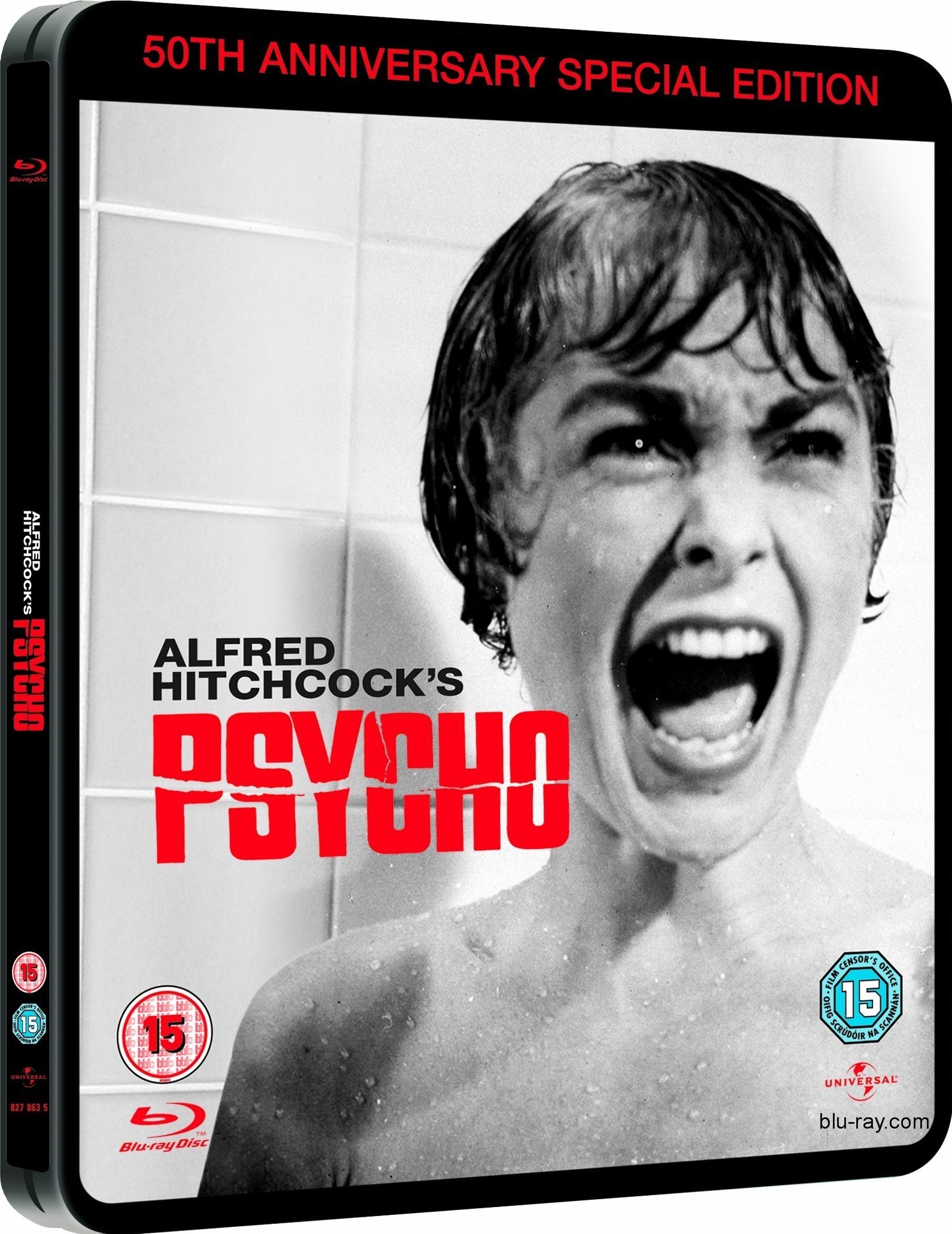 |
Alfred Hitchcock’s PSYCHO (1960)
The Psyche of a Psycho
... Hitchcock’s blockbuster Psycho touches all these definitions with a masterful cinematic brush. Norman Bates – the main character played by the amazing and very young Anthony Perkins – loses his mind and, consequently, his soul. He distortedly identifies his lost spirit with Marion Crane (Academy Award winner Janet Leigh), the sole visitor of the Bates Motel. This newly found Psyche/Marion motivates all of Norman’s future actions: while in search for his Psyche, Norman becomes a psycho . . . |
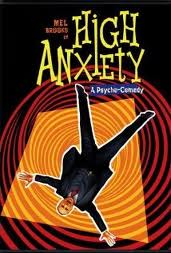 |
Mel Brooks’ HIGH ANXIETY (1977)
That’s Entertainment!
Fun.
Mel Brooks equals fun. Fun to watch and listen to. This small and rather chubby fellow was born an entertainer and, thank God, he followed his innate talents entering the long, bumpy road of the showbiz... Mel Brooks’ adorning wand is his unparalleled sense of irony and, sometimes, sarcasm. In his movies, Brooks seems acutely aware of the idiosyncrasies ‘pestering’ the entertainment industry. And, boy, had he fun to point them out! This is why High Anxiety is such a hilarious burlesque adventure – it is Hitchcock upside down. One almost could hear a pixie-Brooks whispering: “I am going to give you folks such a massive thrill that you’ll burst uncontrollably into laughter” . . .
|
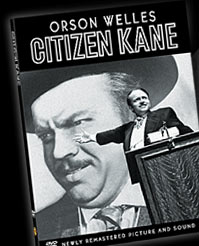 |
Orson Welles' CITIZEN KANE (1941)
Who’s Afraid of Charles Foster Kane?
This is a review about a movie that, for almost sixty years, was regarded as the best film ever made. Although in 2012 it was ‘downgraded’ to #2, Citizen Kane remains one of the most daring, complex, and intriguing production of all times.
Taking into account all of the above, the thought of writing another review – after the hundreds, if not thousands, already written – about this giant of the cinema was, at the least, a daunting task. It also goes without saying that it was impossible to produce a short review on such a challenging subject.
Everything is intimidating about Citizen Kane: the character – physically strong, with a resounding voice, charismatic, wealthy, notorious, influential, and powerful; his creator, Orson Welles – at the young age of 26 and already famous; the movie itself ...
|
|
 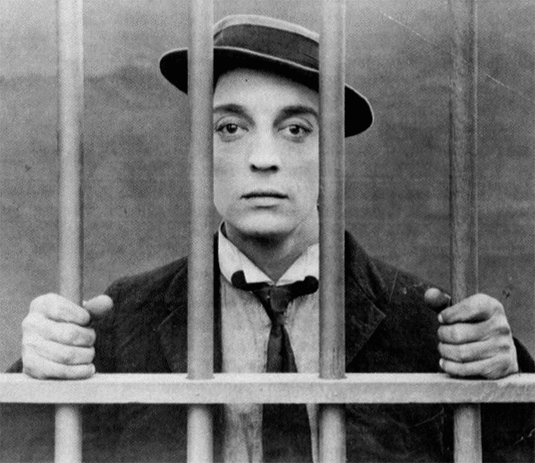 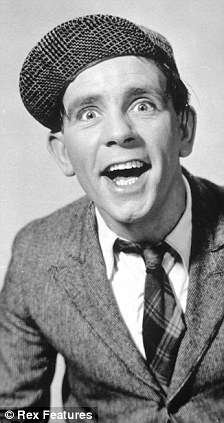
 
|
CLASSICS OF COMEDY
Life as Laughter
So who was the first comedian in the world? What was the first ever prank or joke? We will never know. We can, however, look back in time and watch what the early films show and tell us about how, why and about what our ancestors used to laugh. Taking a glance to the great first comedians of the silver screen may offer the viewer an unforgettable experience, both surprisingly interesting and refreshingly hilarious. From Sennett to Chaplin, these comedians where astoundingly complete as entertainers. Let’s take a look into Mack Sennett’s bio, for example ...
|